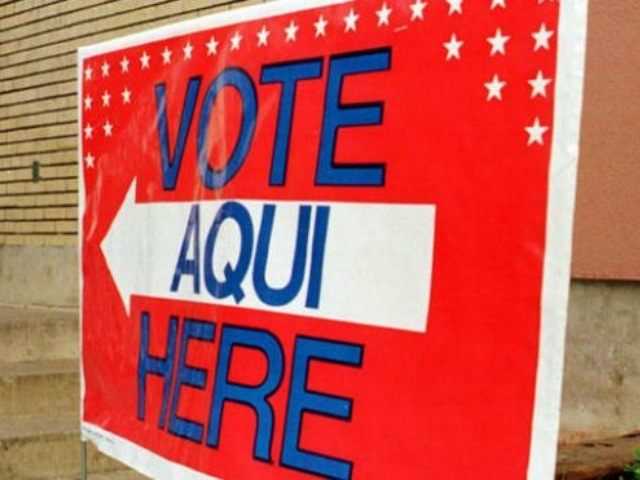Non-citizens are ineligible to vote in U.S. elections, but they can participate in other ways and often do, according to a new study slated for publication in a social science journal.
Authored by political scientists Michael Jones-Correa and James McCann, the study used data collected from a survey called the “Latino Immigrant National Election Study (LINES)” to look at the behavior of Latino-non citizens during the 2012 presidential election cycle. Jones-Correa and James McCann’s report will be published in the The Russell Sage Foundation Journal of the Social Sciences. Its findings were first reported by NBC News.
Speaking to NBC News, the authors detailed some of the results of their study, including that non-citizen Latino immigrants are participating in elections and politics in ways other than the polls.
“This premise might strike some people as odd, but we had the idea that people who live in the U.S. might participate in some way or another in our democratic process,” McCann, a political science professor at Purdue University, told NBC News.
According McCann, some 40 million or one-in-12 U.S. residents are either legal or illegal non-citizens. While McCan argues that there is “absolutely no evidence” that non-citizens are voting in elections, there is amble evidence that they are participating U.S. elections in other ways.
“Non-citizens, however, are engaged in political behavior. Research by McCann and Jones-Correa found that about one out of three non-citizen Latino immigrants reported attending rallies and marches, helping gather signatures for causes, posting political bumper stickers on their cars or political signs outside their homes, and having political discussions with friends, families, and neighbors,” NBC News reports.
With an ample percentage of non-citizen Latinos engaging in the political process in ways beyond voting, the authors write, “Exclusion from the ballot box is not tantamount to civic silence.”
Jones-Correa, a professor of government at Cornell University, highlighted to NBC News the distinction between direct and indirect engagement.
“They may participate directly by marching or posting signs,” Jones-Correa said, “but they also indirectly influence their families through conversations and ‘convincing.’”
Indirect engagement like “convincing,” he noted is prevent in families in so-called mixed-status families, in which there are members with multiple immigration statuses or citizenships.
“The argument used to be either/or; you were either involved in the U.S. or in your country of origin,” Jones-Correa told NBC News. ”I think there is enough research to show that it is not ‘either/or,’ it is ‘and.’ People who are active in one arena are likely to be active in another. Immigrants who have active ties in their country of origin, are likely to use the same tools to be active and involved in U.S.”

COMMENTS
Please let us know if you're having issues with commenting.